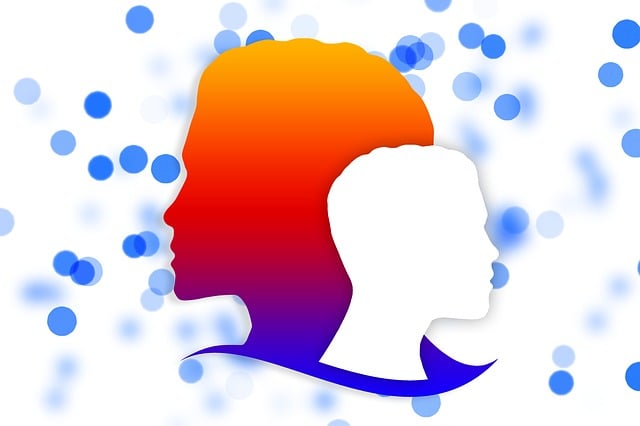Recognizing severe depression in teens is key. Warning signs include persistent sorrow, hopelessness, and behavioral changes. Consult a mental health professional for evaluations and tailored treatments like CBT, IPT, or hospitalization when safety's at risk. Intensive therapy, including CBT, IPT, family-focused, and mindfulness, offers immersive support for severe cases. Support systems, including professional help and peer groups, enhance recovery by providing encouragement and coping strategies.
Teen depression is a serious mental health concern that requires prompt attention. Knowing when to seek hospitalization or intensive therapy is crucial for ensuring teens receive the necessary support. This article guides parents and caregivers through recognizing severe depression in adolescents, understanding the benefits of hospitalization and intensive therapy, exploring various treatment options, and fostering supportive systems for successful recovery from therapy for teenage depression.
Recognizing Severe Depression in Teens
Recognizing severe depression in teens is a critical step in ensuring they receive the appropriate care. While mild sadness or occasional low moods are normal parts of adolescence, persistent feelings of profound sorrow, hopelessness, and helplessness warrant attention. Look out for significant changes in behavior, such as a loss of interest in activities once enjoyed, withdrawal from social interactions, dramatic shifts in appetite or sleep patterns, fatigue, difficulty concentrating, and thoughts of self-harm or suicide. These signs may indicate a need for intensive therapy or hospitalization to manage the teen’s depression effectively.
If you notice these symptoms, it’s essential to consult a healthcare professional who specializes in mental health for teenagers. They can provide a comprehensive evaluation and recommend suitable treatment options, which may include therapy for teenage depression tailored to the individual’s needs, such as cognitive-behavioral therapy (CBT), interpersonal therapy, or psychodynamic therapy. In severe cases, hospitalization might be necessary for close monitoring and intensive interventions to ensure the teen’s safety and well-being.
When Hospitalization Offers Immediate Help
In cases where teen depression symptoms are severe and pose an immediate risk to the individual’s safety or well-being, hospitalization may be necessary. This step is often taken when a young person is experiencing psychotic symptoms, has thoughts of self-harm or suicide, or is in a crisis situation. Hospitalization allows for close monitoring and immediate access to intensive therapy for teenage depression, providing a crucial support system during a vulnerable time.
It offers a structured environment where medical professionals can stabilize the teenager’s condition, ensure their safety, and implement evidence-based interventions such as medication and specialized psychotherapy. This level of care is vital when the severity or sudden onset of depression interferes with daily functioning, impairs relationships, or indicates a high risk of harm to self or others.
Intensive Therapy: Types and Benefits
Intensive therapy, also known as specialized or advanced treatment, plays a pivotal role in addressing severe or complex cases of teen depression. This type of therapy is designed to provide an immersive and focused approach, offering comprehensive support for adolescents struggling with intense emotional distress. It involves various techniques tailored to help teens navigate their feelings and behaviors more effectively.
There are several types of intensive therapy for teenage depression, each with its unique benefits. Cognitive Behavioral Therapy (CBT) focuses on identifying and changing negative thought patterns and behaviors. Interpersonal Therapy (IPT) targets relationship issues and social factors contributing to depression. Family-focused therapy involves the support system, improving communication and coping strategies within the family unit. Additionally, mindfulness-based interventions teach teens relaxation techniques and present-moment awareness, helping them manage symptoms and promote overall well-being. These therapeutic approaches often involve intensive sessions over a shorter period, providing immediate and long-lasting positive outcomes for those in need of therapy for teenage depression.
Support Systems for Teen Recovery
Support systems play a pivotal role in the recovery of teens dealing with depression. Beyond professional help, fostering an environment rich in emotional support can significantly aid in their journey to healing. Family members and close friends can learn about teenage depression to better understand and respond effectively. This knowledge enables them to offer encouragement, actively listen, and provide comfort during challenging times.
Additionally, peer support groups can be invaluable, as teens often relate more easily to their peers. These groups offer a safe space for sharing experiences, gaining insights from peers who’ve been through similar struggles, and developing coping strategies together. Together, these support systems create a network of care that complements therapy for teenage depression, contributing to holistic recovery.
Recognizing the signs of severe depression in teens is crucial, as it can lead to timely interventions like hospitalization or intensive therapy. When symptoms impair daily functioning and pose a risk to safety, immediate medical attention is necessary. Intensive therapy, including various specialized treatments, offers comprehensive support for teen depression. Hospitalization can provide a controlled environment for close monitoring and rapid response to crises. With the right support systems in place, combining medical care with therapeutic approaches like cognitive-behavioral therapy (CBT) or interpersonal therapy (IPT), teens can recover and thrive. Encouraging open conversations about mental health and fostering strong support networks are key steps in helping young individuals navigate their journey towards well-being.
